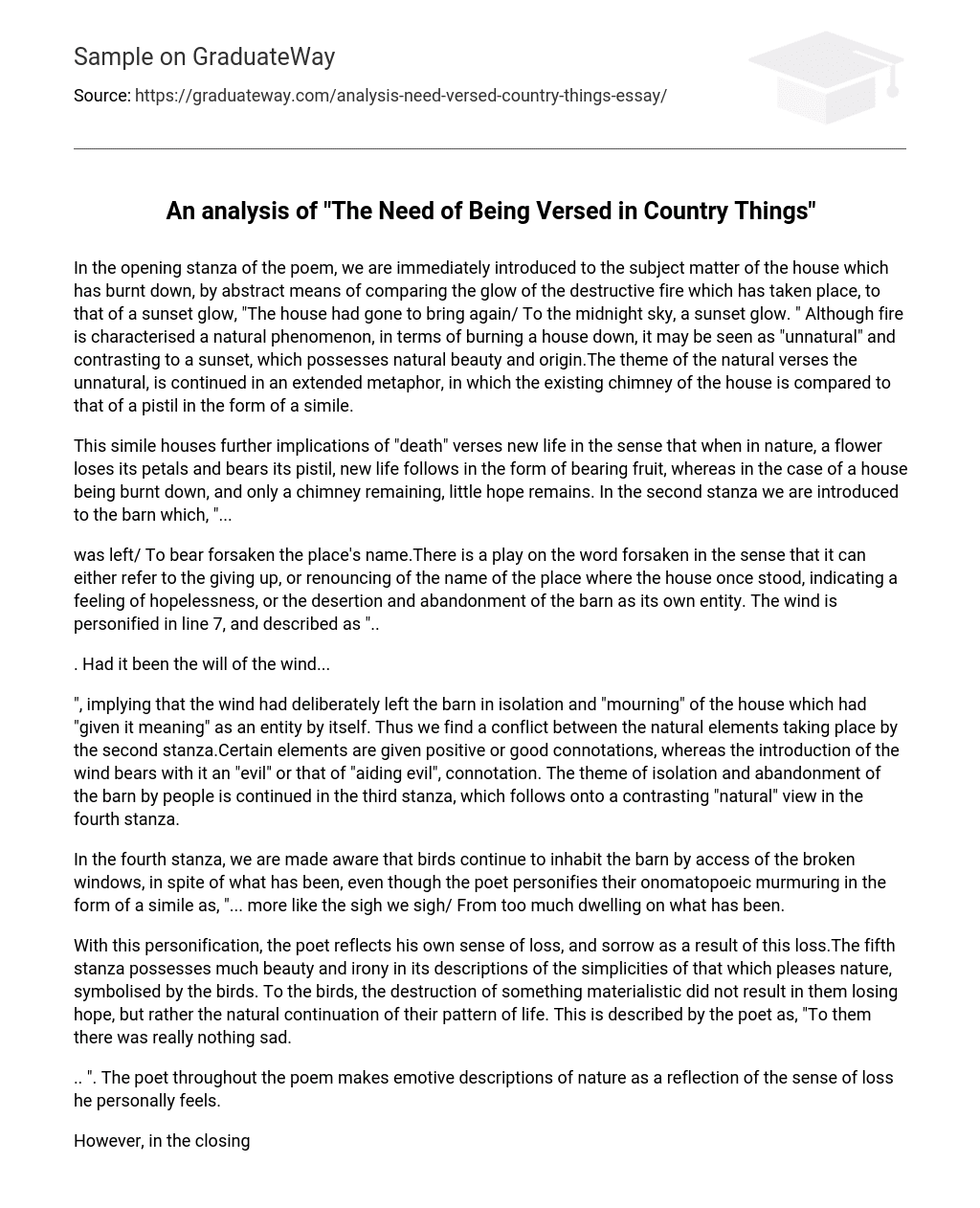In the opening stanza of the poem, we are immediately introduced to the subject matter of the house which has burnt down, by abstract means of comparing the glow of the destructive fire which has taken place, to that of a sunset glow, “The house had gone to bring again/ To the midnight sky, a sunset glow. ” Although fire is characterised a natural phenomenon, in terms of burning a house down, it may be seen as “unnatural” and contrasting to a sunset, which possesses natural beauty and origin.The theme of the natural verses the unnatural, is continued in an extended metaphor, in which the existing chimney of the house is compared to that of a pistil in the form of a simile.
This simile houses further implications of “death” verses new life in the sense that when in nature, a flower loses its petals and bears its pistil, new life follows in the form of bearing fruit, whereas in the case of a house being burnt down, and only a chimney remaining, little hope remains. In the second stanza we are introduced to the barn which, “…
was left/ To bear forsaken the place’s name.There is a play on the word forsaken in the sense that it can either refer to the giving up, or renouncing of the name of the place where the house once stood, indicating a feeling of hopelessness, or the desertion and abandonment of the barn as its own entity. The wind is personified in line 7, and described as “..
. Had it been the will of the wind…
“, implying that the wind had deliberately left the barn in isolation and “mourning” of the house which had “given it meaning” as an entity by itself. Thus we find a conflict between the natural elements taking place by the second stanza.Certain elements are given positive or good connotations, whereas the introduction of the wind bears with it an “evil” or that of “aiding evil”, connotation. The theme of isolation and abandonment of the barn by people is continued in the third stanza, which follows onto a contrasting “natural” view in the fourth stanza.
In the fourth stanza, we are made aware that birds continue to inhabit the barn by access of the broken windows, in spite of what has been, even though the poet personifies their onomatopoeic murmuring in the form of a simile as, “… more like the sigh we sigh/ From too much dwelling on what has been.
With this personification, the poet reflects his own sense of loss, and sorrow as a result of this loss.The fifth stanza possesses much beauty and irony in its descriptions of the simplicities of that which pleases nature, symbolised by the birds. To the birds, the destruction of something materialistic did not result in them losing hope, but rather the natural continuation of their pattern of life. This is described by the poet as, “To them there was really nothing sad.
.. “. The poet throughout the poem makes emotive descriptions of nature as a reflection of the sense of loss he personally feels.
However, in the closing stanza of the poem, he finally faces this sense of denial with the implied admittance in the form of symbolism, that with knowledge of the sounds that phoebes make, he was aware that they were in fact not weeping, or “mourning” the loss of the house, but rather continuing in their everyday life. This poem may also be seen on a deeper level as a form of ironic commentary in the form of a paradox, of mankind’s attachment to earthly possessions in the form of materialism, greed and neediness, instead of “The need of being versed in country things”, as animals and nature are in their continuing existence.





